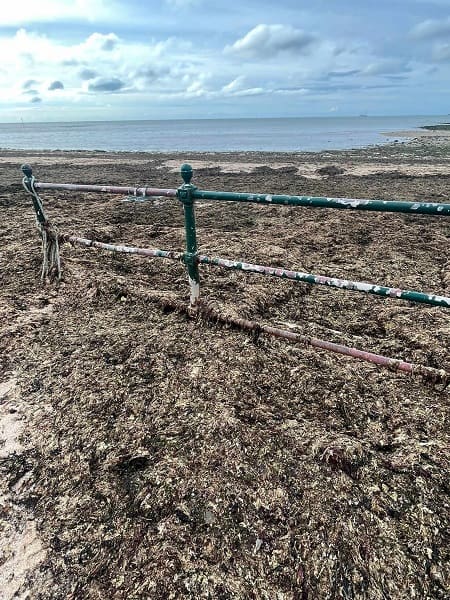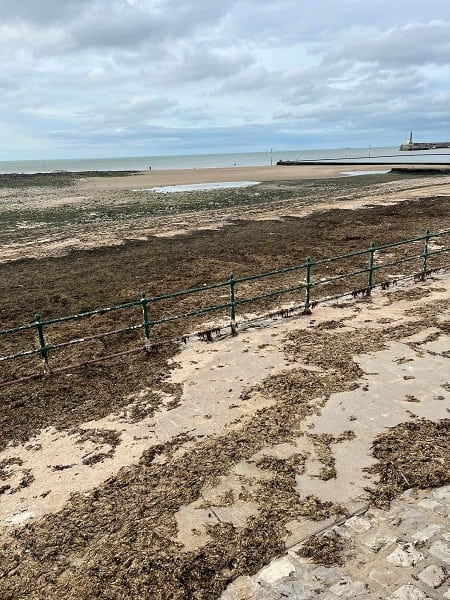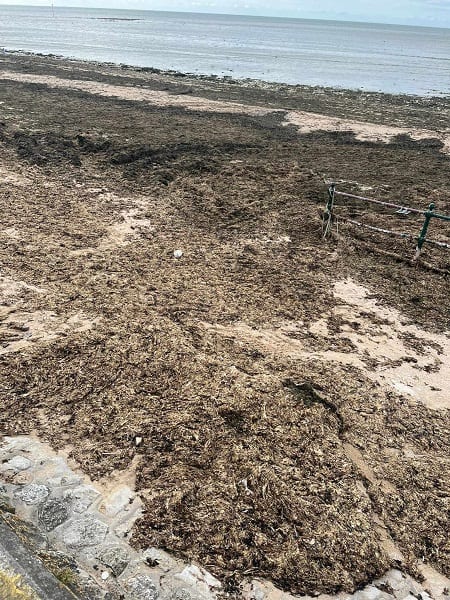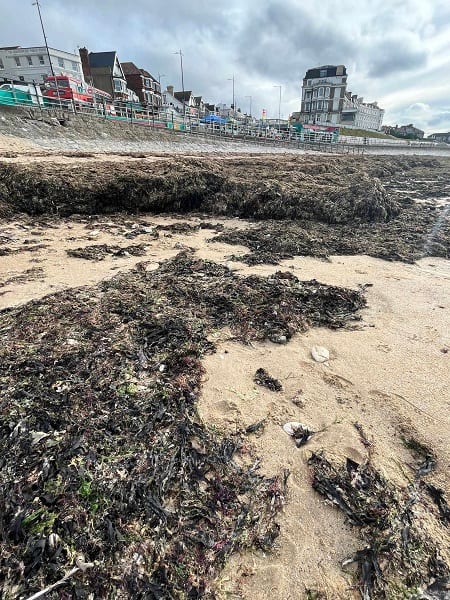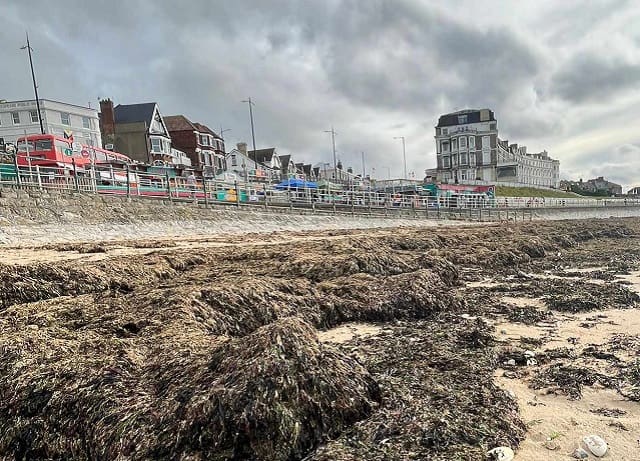
The huge volume of seaweed being washed up on Thanet beaches this summer, and the stench as it dries, is driving trade away, says Margate Bus Cafe boss Jodie Ellena-Lindley.
Thanet council says its staff have collected 1,000 tonnes over 5 weeks from the beginning of July compared to usually collecting between 400 and 800 tonnes in a whole season. So far this summer, the council has spent £65,000 on removing seaweed from beaches.
But there are still thick carpets of seaweed covering beaches including Westgate, Minnis and Westbrook to mounds at the Nayland end of Margate sands and layers at Walpole Bay.
The Bus Cafe, which is based at Nayland’s Royal Crescent Promenade, is one of the businesses hit with falling trade.
The venture has been run by Simon Lindley, wife Jodie and couple Xander Muir and Lois Du Plessis for the last seven years but Jodie says this year is unusually quiet due to constant rain in July and the off-putting stench of seaweed.
She said: “On Thursday we were quieter than usual and the seaweed really smelt bad. The bar was quiet, and so were the other vendors, which for a fairly nice sunny day in half term is unusual.
“Usually the beach in front of us is packed full of people and they come to the Sun Deck for food and drink. This year no one can use that beach at all, so we’re losing a fair chunk of trade due to it being unusable.
“Where the seaweed has started to dry it really smells. We have seen more vermin around which we wouldn’t normally as it is usually a busy area.
“It is disgusting, really grim and just everywhere.”
Jodie says she called the council’s environmental department due to the strong stench coming from the seaweed mound.
She said: “He told me they clear the seaweed every day but they haven’t touched this side of the beach and there is a mountain of it there.
“A few weeks back there were loads of dead crabs, then it was dead starfish and now we have rotten contaminated seaweed to deal with.”
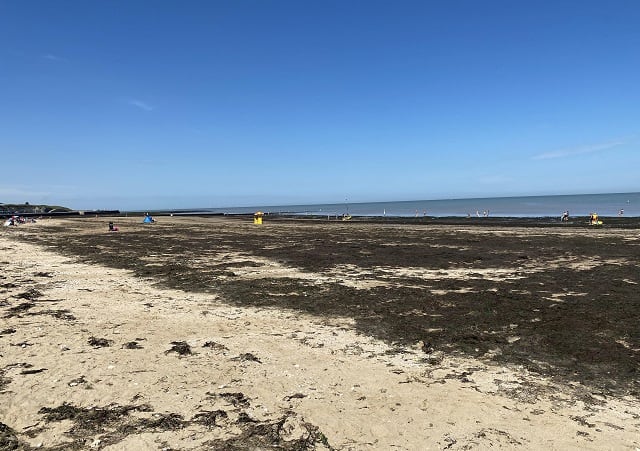
In Westgate businesses, hut owners and visitors are also struggling with the decomposing seaweed.
Residents Jules Dawkins described St Mildred’s Bay as having “dried seaweed a foot deep.”
In response one hut owner said the site was “unusable.”
Another resident said: “Empty, stinking, and (you) have to pass through 20 metres of black sludge until you reach cleaner water.”
Concerns were also raised over the impact on beach front businesses such as Millies, St Mildred’s Bay Bistro and others.
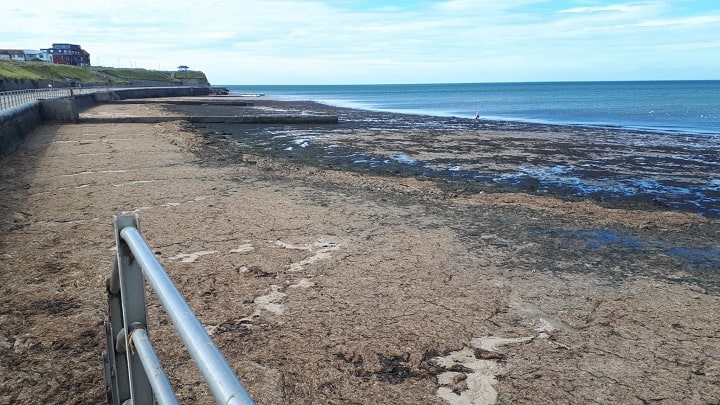
Seaweed is removed from Thanet beaches between June and September and taken to a local farm. This is done under licence from the Environment Agency.
The amount that can be stockpiled at the farm for spreading is limited to ensure the nitrate levels the seaweed releases into the soil remain at the correct level for growing food crops.
But deputy council leader Helen Whitehead says the council has now reached the limit of what it is allowed to collect for farms. Once fields are past a certain nitrate point, they can’t have further seaweed deposited.
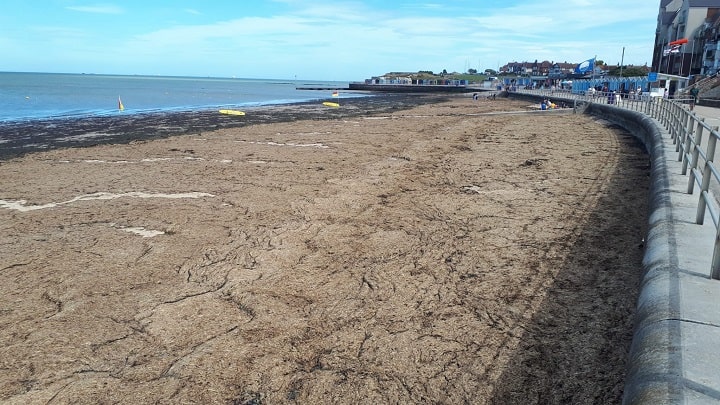
Talking to concerned Westgate residents on social media Cllr Whitehead said Thanet council is now looking at how the seaweed could be removed for compost or other forms of disposal.
She added: “We have tried to extend our collection licence with the Environment Agency, but this isn’t possible in terms of the timeframe we have because of the length of time it will take for the soil sample analysis required.
“We are working on how to continue collecting, but exceeding over 1000 tonnes in collection at this point is highly unusual, and couldn’t have been predicted.”
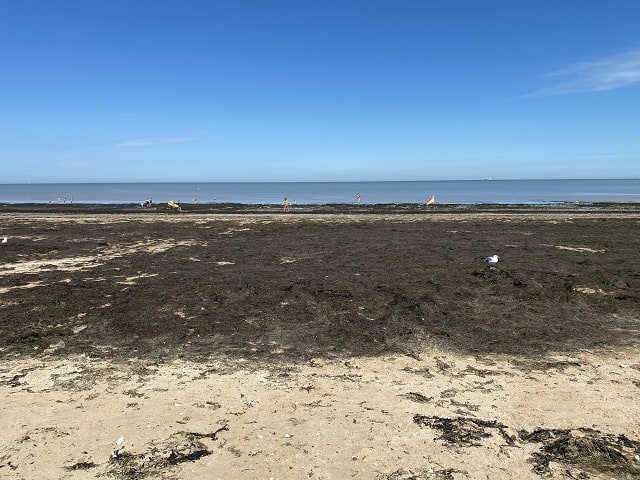
To use the seaweed as a fertiliser farmers need to opt in and apply to the Environment Agency for a licence. In a usual year the existing licences would cover the seaweed disposal but the increase in volume this year has outstripped capacity.
Rough seas, higher tides and strong winds cause large amounts of marine material such as seaweed to get washed up on beaches regularly around the UK. Warmer seas can also be a contributory factor, the Marine Conservation Society says UK sea temperatures have risen 2°C in the past 40 years.
Non-native species – those that wouldn’t normally be found in the UK – have also found their way to our seas, mostly due to human activity. Further afield high Sargassum levels of recent years are tied to nutrient-rich water running off land into rivers and out to the oceans, where it can fertilise the seaweed.
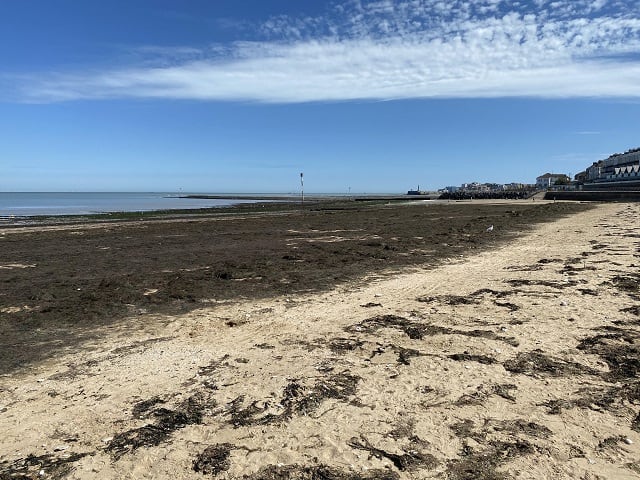
Sewage, bad eggs or rotten vegetable smells come from accumulated seaweed on the beach above the tideline, which decomposes rapidly in warm weather. The same stench can occur if there is algae breakdown in the water which can have a brown discolouration with sand or silt trapped in the foam.
Seaweed wash up is a natural occurrence and a vital part of the eco-system. Rising levels may have causes including increasing nutrients, mainly nitrogen, in coastal waters from sources which include urban run-off, agricultural and sewage input.
Seaweed is not collected during the winter months (October to March inclusive). It is left to help provide the foraging ground for the internationally important winter visiting birds, such as the Turnstone. This is important so they have enough energy to migrate to the tundra to breed over the summer and is a legal requirement of the Special Protection Area (SPA) for these wintering birds.
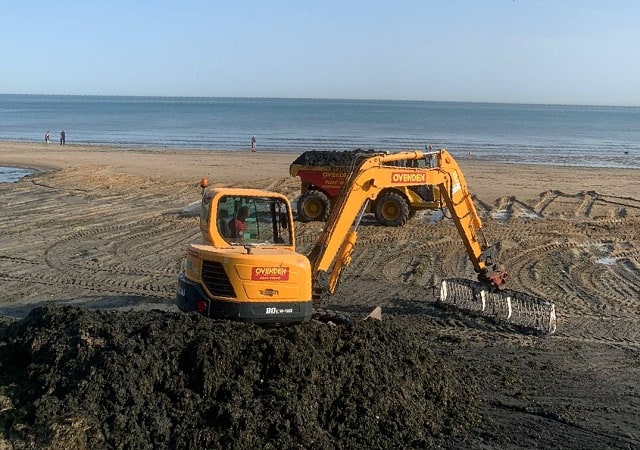
The chalk reef where it grows is protected by law which means the council is not able to remove seaweed from locations such as Beresford Gap, Grenham Bay and Epple Bay.
The council says: “We are committed to keeping our beaches looking beautiful and have been actively managing seaweed from our main bathing bays.
“This season environmental conditions have provided ideal conditions for the seaweed growth and depositing on to our beaches.
“We are currently looking at what we can do during the heavy seaweed years, as they are likely to increase as the climate changes.”
In the 2023/24 council budget, set in February, extra resources were made for seaweed clearance with a £45,000 allocation.


